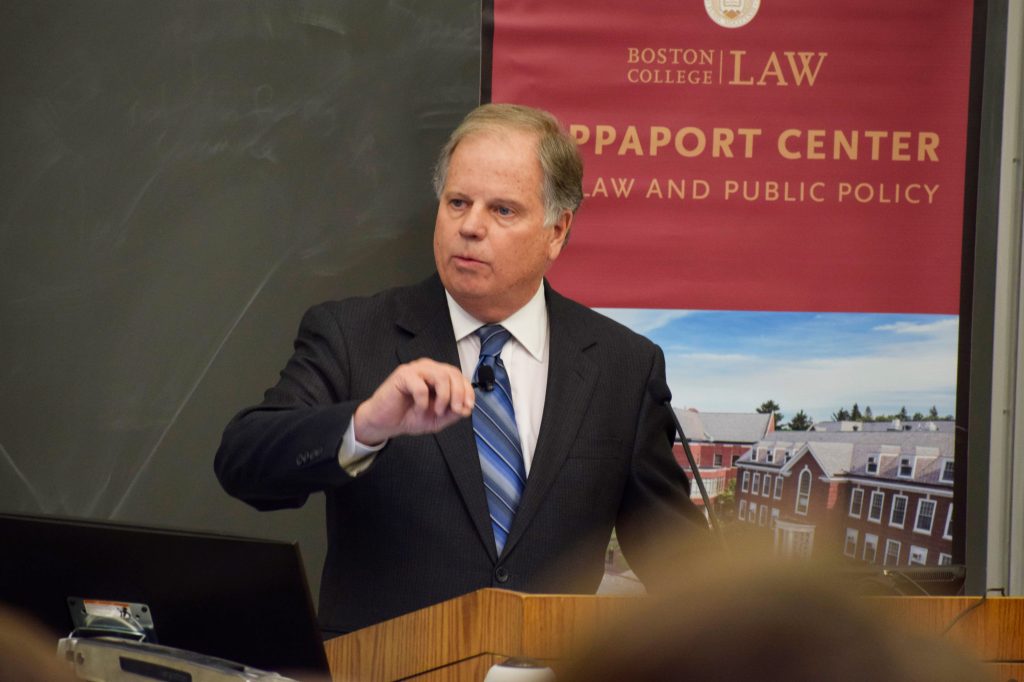Former Democratic senator from Alabama Doug Jones, who is BC Law’s Jerome Lyle Rappaport Distinguished Visiting Professor this semester, has been selected by President Biden to play a key role in the Senate confirmation process for his Supreme Court nominee. According to a story in the New York Times on Tuesday, Jones will serve, in congressional parlance, as a Senate sherpa or guide to the nominee.
In his sherpa role, Jones will help the nominee navigate the Senate, where he served for three years, beginning in 2017. Elected that year in a special election to fill the vacancy left when Jeff Sessions became US Attorney General, Jones was the first Democrat to win a US Senate seat in Alabama since 1992. His seat flipped back to Republicans in the 2020 election.
President Biden has said his intention is to name a Black woman to fill Justice Stephen Breyer’s role when he retires later this year. The confirmation process, given the deep divisions in Congress and protests of Republicans to Biden’s decision, is expected to be difficult.
Jones is a seasoned politician and prosecutor strong on issues of racial justice and equality, voting rights, and law enforcement reform who was on President Biden’s short-list last year for attorney general. Jones will prepare the nominee for the hearings and make introductions on Capitol Hill.
“It seems that perhaps more than any time since the Civil War, the greatest threat to the ideas that created this country is coming from within, from the very deep divisions we see in Americans that are only growing deeper.”
Rappaport Visiting Professor Doug Jones
His guidance in the Supreme Court process will prove an enhancement to his teaching at BC Law this term through the Rappaport Center for Law and Public Policy. For example, his seminar, “The United States Senate Today: How It Works; Why It Doesn’t,” is a real-time study of the day-to-day workings of the Senate. Students are acting as staffers for a Senator throughout the semester, being assigned to various Senate staff duties such as legislation, press, and committees. Class assignments are tracking the Senate’s 2022 spring schedule and activities, including floor votes and committee hearings; the Supreme Court confirmation will no doubt be among those activities.
Another example is the community address Jones gave on January 25 addressing the state of the democracy and alluding to the lanterns in Paul Revere’s midnight ride. In his talk, Jones called for three lanterns to be lit in every city and every town in America—a signal that our biggest threats are the divisions among us. “It seems that perhaps more than any time since the Civil War, the greatest threat to the ideas that created this country is coming from within, from the very deep divisions we see in Americans that are only growing deeper,” Jones said.
While in the Senate, Jones introduced or passed more than two dozen bipartisan bills into law in just three years, including legislation to end the “military widow’s tax,” provide permanent funding for historically black colleges and universities (HBCUs), shed light on Civil Rights-era cold cases, and expand access to broadband in rural communities. He was also one of the principal architects of the anti-money laundering legislation passed by Congress as part of the National Defense Authorization Act of 2020.
Read about Jones’s lecture on healing political divisions here.


